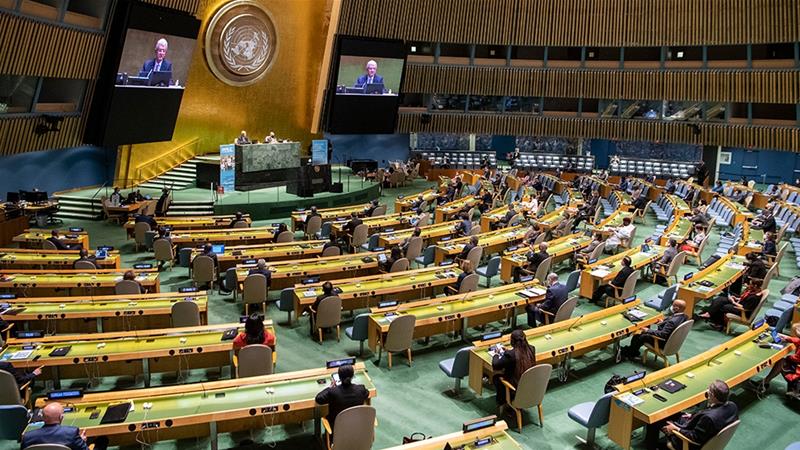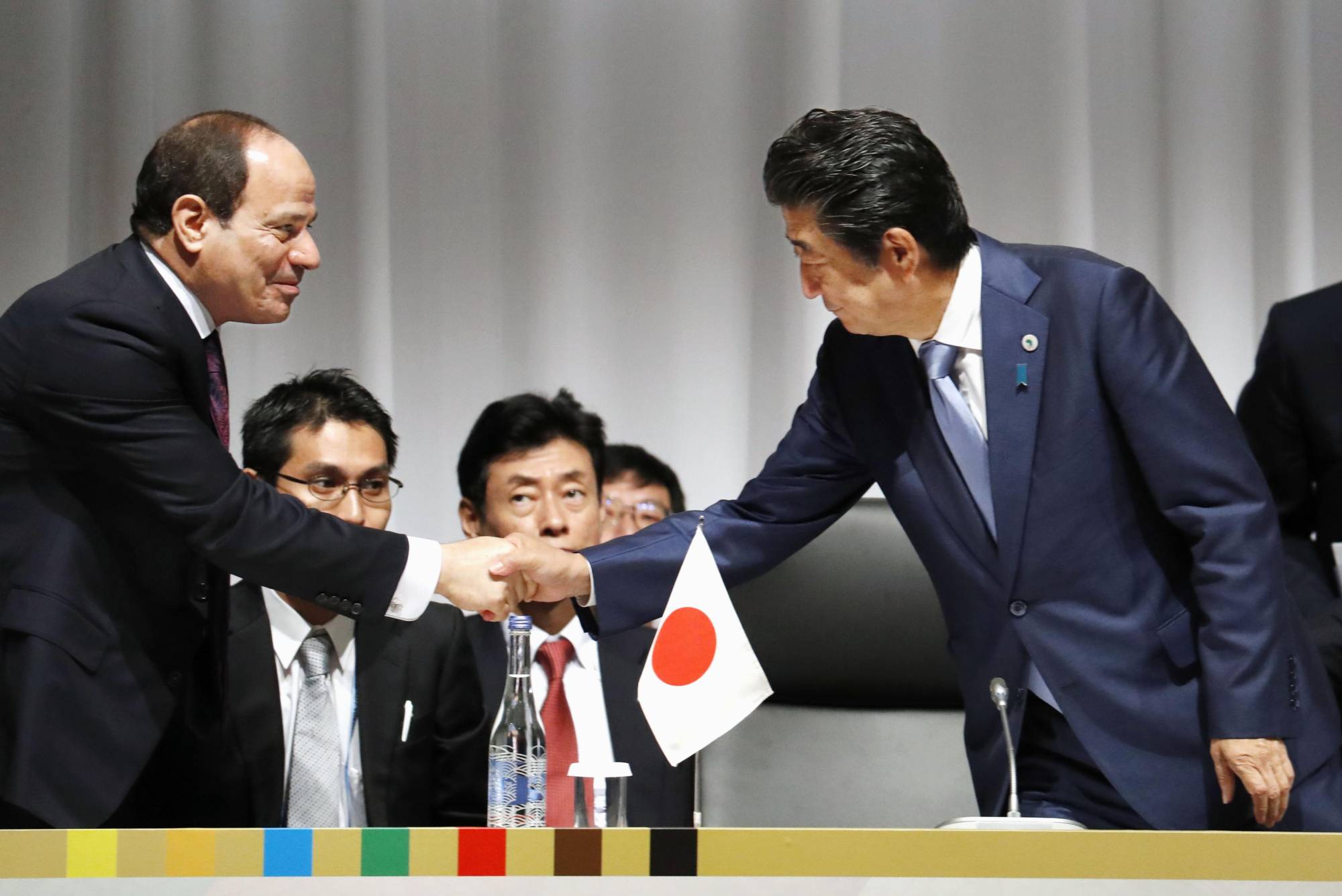The United Nations turns 75 this year - and its annual General Assembly was meant to be especially big.
But what is usually an event packed with world leaders from around the globe will look much different this Tuesday because of the coronavirus pandemic.
Al Jazeera’s James Bays reports from a subdued UN headquarters in New York.
Source: Al Jazeera
Officers of the Ghana Police Service will on Monday, September 21, 2020, embark on a confidence-building march in Accra ahead of the December polls.
The Police said the march is geared towards assuring Ghanaians of their commitment towards ensuring adequate security before, during and after the elections.
This was announced in a public release signed by Superintendent of Police Sheilla Kessie Abayie-Buckman.
“The March is one of several activities planned to assure the public of the commitment and readiness of the Police to maintain law and order before, during and after the elections,” the release said.
“It shall also be used to display some Police resources like ambulance, trained dogs, crime scene and armoured vehicles, which shall be tactically deployed as part of resources for election security, to protect law-abiding citizens and residents of Ghana.”
The Police said the march will begin at 6:00am in the morning at the King Road, where the National Police Headquarters is located.
The public is, therefore, urged “to corporate with us. Please read the attached News Release for more information.”
Read the full release from the Police below: Pulse
After recent years of growth, Japanese companies’ expansion into Africa is hitting a wall, dampened by the novel coronavirus pandemic and the resignation of former Prime Minister Shinzo Abe.
The pandemic has brought activities to a halt due to travel restrictions.
Abe, who had pushed for businesses’ expansion into Africa, has abruptly stepped down for ill health. One development consultant is worried, saying that “the political driving force may be lost.”
Before the pandemic, Africa, as a “last frontier,” had attracted investment from the rest of the world and continued steady economic growth.
At the Tokyo International Conference on African Development held in Yokohama in August 2019, Abe pledged to take every possible measure to help companies advance into Africa.
Under the government’s initiative, businesses had shown a growing interest in Africa.
However, many companies have withdrawn representatives from Africa due to the spread of novel coronavirus infections.
By contrast, European and Chinese companies are continuing their operations in Africa as they arrived in the continent earlier than Japanese companies and developed solid local business networks.
“It is certain that the presence of Japan in Africa will drop due to the coronavirus crisis,” Jun Hirabayashi, director of Tokyo-based consulting company Qunie Corp., said.
In the meantime, online seminars on business in Africa have attracted attention in Japan. About 160 people, including representatives from a range of companies, attended a seminar on Nigeria organized by the U.N. Industrial Development Organization on Wednesday.
At the seminar, Yewande Sadiku, executive secretary and CEO of the Nigerian Investment Promotion Commission, highlighted the attraction of Nigeria as an investment destination. She said Nigeria has the largest population and economic scale among African nations, adding that the country will have the world’s third-largest population by 2050.
Via the chat function, seminar participants asked questions about local electricity and telecommunications environments and import restrictions.
Thanks to the online system, the number of seminar participants has increased, an official of UNIDO said.
The Japan External Trade Organization plans to hold four online business meetings on Africa in the medical, environment and two other fields between September and January next year, in an effort to connect businesses with African companies even amid the coronavirus crisis.
“Japanese companies’ enthusiasm about business in Africa has not weakened,” Osamu Kubota, executive vice president of JETRO, said.
Source: Japan Times
On Monday, Côte d’Ivoire’s Constitutional Council approved President Alassane Ouattara’s controversial bid to run for a third term in the country’s upcoming October 31 election. The country’s top court also narrowed the eligible presidential candidates to four, excluding all candidates convicted of a crime, including former Prime Minister Guillaume Soro and former President Laurent Gbagbo. Gbagbo and Soro, who have been convicted of war crimes and embezzling $2 million of public funds, respectively, and have sought political refuge in Europe. The International Criminal Court has conditionally freed Gbagbo, who is awaiting the verdict of the prosecution’s appeal, but Côte d’Ivoire does not recognize the court’s jurisdiction.
The court’s decision has been met with criticism from Ouattara’s rivals. More specifically, Soro rejected the court’s ban on his candidacy, stating, “My candidacy is firm, unchangeable and irrevocable.” Countries in the region worry that the controversial vote might undermine the stability of francophone West Africa’s largest economy, which weathered a civil war just 10 years ago. Violent protests in response to Ouattara’s candidacy have already resulted in the deaths of 15 people.
Meanwhile, Mali’s June 5 Movement (M5-RFP), the group opposing Mali’s previous regime under the now-deposed Ibrahim Boubacar Keïta, rejected the military government’s charter proposing an 18-month transition government to be led by either a military or a civilian government. The M5-RFP has instead pushed for a civilian to head the transitional government and has accused the military government of manipulating discourse through intimidation and filtering who could participate in drafting the charter. The Economic Community of West African States (ECOWAS), which has already closed borders with and halted transfers to Mali, threatened to introduce additional sanctions if the military government has not designated a civilian leader to oversee a one-year transition period by next Tuesday. The international community—especially ECOWAS and countries like France and the United States—are eager to resolve the crisis as they are worried that a long transition will undo progress against armed groups in the Sahel region.
Source: Brookings.Edu




